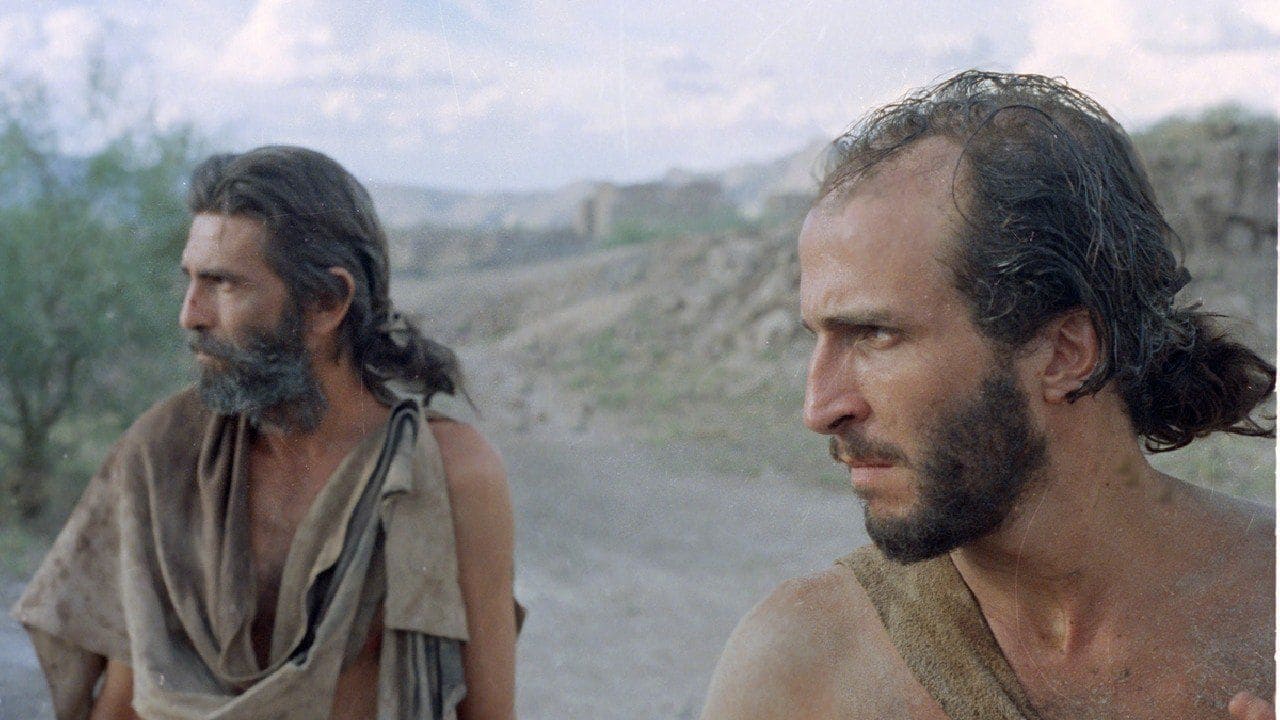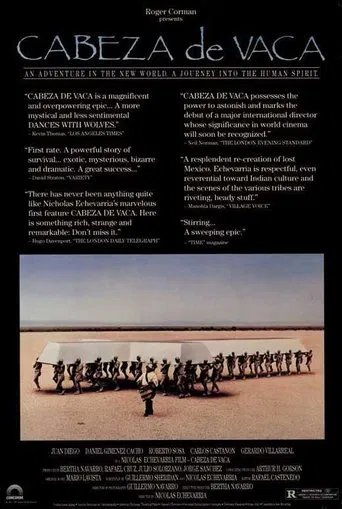Redwarmin
This movie is the proof that the world is becoming a sick and dumb place
Nessieldwi
Very interesting film. Was caught on the premise when seeing the trailer but unsure as to what the outcome would be for the showing. As it turns out, it was a very good film.
FrogGlace
In other words,this film is a surreal ride.
Brendon Jones
It’s fine. It's literally the definition of a fine movie. You’ve seen it before, you know every beat and outcome before the characters even do. Only question is how much escapism you’re looking for.
Aristides-2
Director/co-writer Nicolás Echevarría profoundly missed an opportunity to make this otherwise flawed film memorable by failing to let the sub-titles (in English for this viewer) mirror de Vaca's gradual understanding of the language he learned as an 8 year captive. The indigenous people were shown to be of a different-than-Western civilization; extremely different in cultural day to day living. But he learned how to speak and hear them, understand them. By sharing his gradual ability to think like them, with us the audience, we too could have seen their being 'foreign' gradually change into kinship . This would make the ending of the movie, as the Spanish conquistadors force the people into slavery, misery and premature death, much more effecting. As it is it's solely de Vaca's humanity that cries from the screen instead of the humanity of the people we should have learned to know as individuals, as well as his.
tooplanx
Very interesting and visually stunning movie, which paints a unique portrait of pre-European life in this region.However, most of the story is fabrication, as other reviewers have pointed out, which is a shame and takes much away from the 'insight' that this film seems to give.On the point of geography- This film joins the expedition part way through their journey after they have left the Florida peninsula and just before they land in the Galveston region. It is worth pointing out that at this time THE WHOLE OF THE REGION FROM THE Florida PENINSULA TO NORTHERN 'NEW SPAIN' (MEXICO) WAS REGARDED AS Florida, and so film characters talking about the land as Florida is historically accurate.Very good film though and definitely worth a watch.
jimi99
There are many historical inaccuracies in this film if one considers it based on de Vaca's letter to the King of Spain detailing his ordeals and adventures. Having read Haniel Long's amazing little book on the subject in which he imagines another letter from de Vaca to the king after de Vaca has been back in Spain for some time in which he tries to convey the sense of what is "civilized" and what is "savage," I not only appreciate what the makers of this film were trying to say, but consider it a masterpiece.
Another source is the famous Lord Buckley beat monologue of the 1950's called "The Gasser" about Cabeza de Vaca. That great old hipster also homes in on the essential truth about de Vaca's letter to the King: that there is a power, for healing and compassion, which is suppressed in civilized society and which, if not used, "recedes from us." This is the message of the film, and if some characters and situations and even whole tribes were invented, it is dramatic license in the service of a great theme.
peter-209
One chapter of the conquista - the subjugation of the Native American peoples by Europeans. We follow Alvaro Nunez Cabeza de Vaca's adventures and misadventures in the New World from a crash landing of his ship through his saving and capture by the Indians, his forced immersion into the Indian culture, his almost mystical pilgrimage from Florida through the American Southwest to California (or was it Mexico?), up to the bitter end at the hands of his European compatriots. Spectacular visuals lend the film the power of myth, but this is still more realistic depiction of the tragic clash of the cultures in the 16th century America than all the Hollywood productions, including Roland Joffe's "The Mission (1986)" (which, by the way, I do like). The only feature film with this topic that I consider equal, or perhaps even superior, is "Jerico (1988)" made by a Venezuelan ethnography professor Luis Alberto Lamata.

